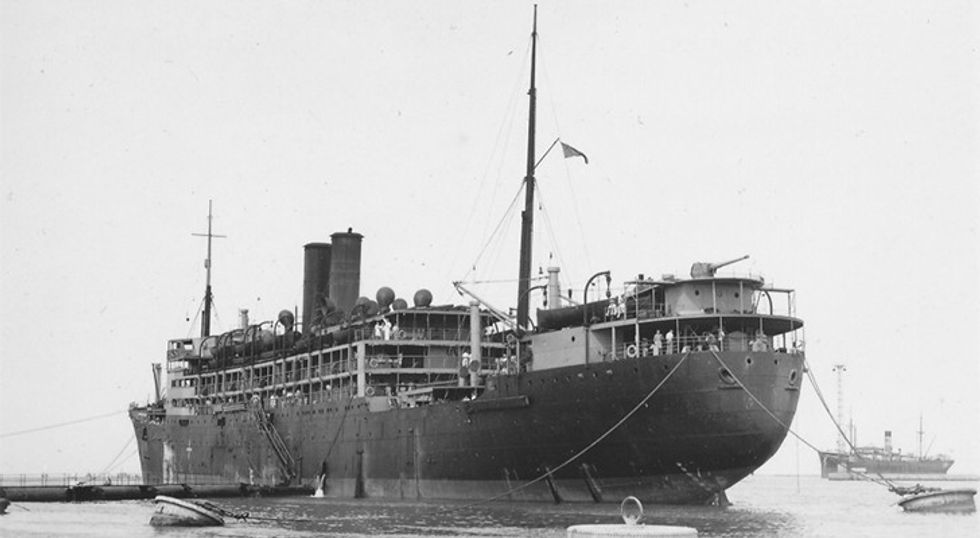The British India Steam Navigation Company steamer, which was built in Tyneside, was torpedoed by a Japanese submarine
Don't Miss
Most Read
A British treasure hunter who raised £32million of silver from a World War Two shipwreck in the Indian Ocean has been told he cannot claim salvage rights.
Motorsport driver Ross Hyett, 70, recovered 2,364 bars of silver from the wreck of the SS Tilawa in 2017.
The British India Steam Navigation Company steamer, which was built in Tyneside, was torpedoed by a Japanese submarine.
It sunk to the bottom of the Indian Ocean off the coast of the Maldives in November 1942.

Motorsport driver Ross Hyett, 70, recovered 2,364 bars of silver from the wreck of the SS Tilawa in 2017
SS TILAWA
A total of 281 passengers and crew were lost.
Hyett, from Derby, formerly served as executive director of the British Racing Drivers' Club.
He spent two years planning and carrying out the salvage operation.
The 70-year-old later brought his hoard back to Southampton in 2017 and declared it to the Receiver of Wreck.
LATEST DEVELOPMENTS:However, the South African Government sued Hyett’s company Argentum Exploration Ltd over the hoard by claiming it was state property.
The Supreme Court ruled South Africa had “sovereign immunity” from Hyett’s claim for salvage rights following a lengthy legal battle.
Lord Lloyd-Jones and Lord Hamblen ruled the silver was not intended for “commercial use”, adding it is covered by the 1978 State Immunity Act.
Jonathan Goulding, a solicitor at the London law firm HFW tasked with advising the South African Government, said: “As we continue to learn more about the ocean sea bed, many more historic wrecks have already been targeted by salvors for the potentially valuable cargo that they carry, and many more will be discovered in time.
“In light of this ruling, anyone hoping to recover valuable lost cargo and bring it to the UK to claim ownership of it will first need to take steps to identify the original owner and make contractual agreements with them to salvage cargo before attempting to do so.”
He added: “In short, the court has firmly sent a message to those hoping to find and claim ownership of lost treasure that finders are not always keepers.”
However, Professor Robert Volterra, of the international law firm Volterra Fietta, warned the Supreme Court judgment was important for London’s status.
He claimed: “The UK’s historical vigilance in upholding international law had seemingly been waning alarmingly, with a series of English court judgments that were significantly eroding the principles of state and diplomatic immunity.
“We are aware of a number of our Government clients around the world beginning to draft ‘reciprocity’ state immunity legislative amendments, implicitly directed against the UK’s recent moves away from the orthodox approach.”














